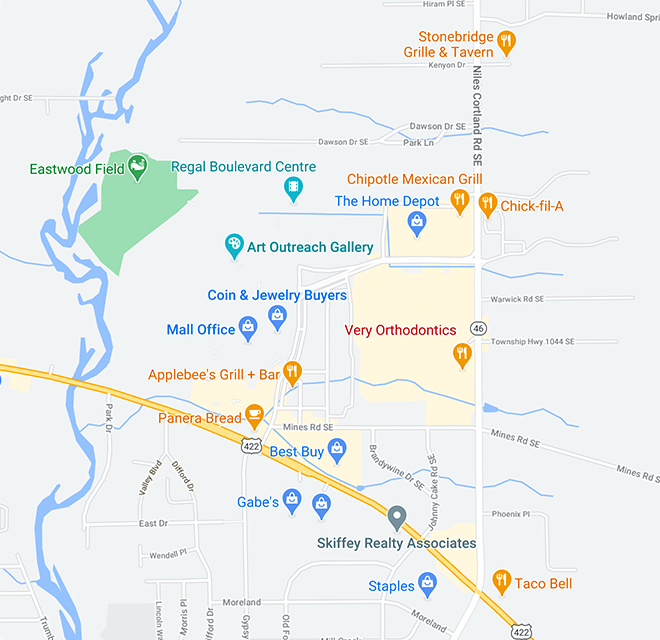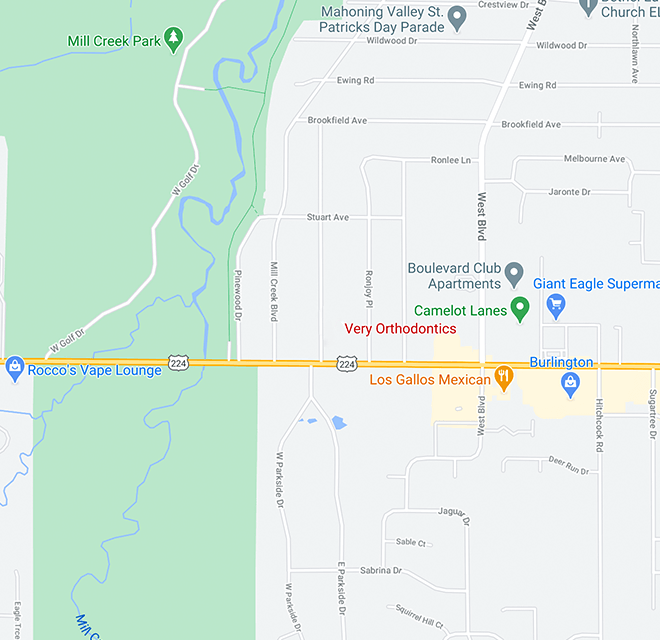Overbite Overview
September 25th, 2024

An overbite is one of the most common malocclusions. If Dr. Daniel Very and our team have diagnosed you with an overbite, you probably have lots of questions. Let’s try to answer some of them!
Just what is an “overbite”?
A malocclusion is another way of saying that you have a problem with your bite, which is the way your jaws and teeth fit together when you bite down. In a healthy bite, the front top teeth project slightly beyond, and slightly overlap, the bottom teeth. A normal overlap is generally considered one or two millimeters.
An overbite is a Class II malocclusion, and means that the upper front teeth cover more of the lower teeth than they should. But that’s a very general definition, and we will diagnose and treat your own, very specific, bite and teeth alignment.
Because overbites aren’t all alike. They might be barely noticeable. Upper teeth might overlap lowers by an extra millimeter or two. In more severe overbites, the upper teeth might cover the lower teeth completely. The amount of overlap and the cause of the overbite will determine your treatment.
What causes an overbite?
Overbites can be dental, caused by tooth alignment, or skeletal, caused by bone development, or a combination of both. They are usually hereditary, so, most often, an overbite is something you’re born with.
The size and position of your jaws, the shape and position of your teeth, all affect your bite alignment. But early oral habits, such as prolonged and vigorous thumb-sucking or pacifier use can contribute to overbite development. Missing teeth and bruxism, or tooth grinding, can also affect the alignment of your bite.
How do we treat an overbite?
There are many types of treatment available. Dr. Daniel Very will recommend a treatment plan based on the type and severity of your overbite. Because some treatments are effective while bones are still growing, your age plays a part as well.
- Braces and Aligners
If dental issues are the main reason for your overbite, braces or clear aligners can be very effective. Rubber bands are commonly used to help bring teeth and jaw into alignment.
- Functional Appliances
If the overbite is caused by a problem with upper and lower jaw development, devices called functional appliances can be used to help guide the growth of the jawbones while a child’s bones are still forming.
For young patients, there are several appliances that can help correct an overbite. Some, like the Herbst appliance, work inside the mouth, while others, like headgear, are worn externally. Your orthodontist will recommend the most effective appliance for your needs.
- Surgical treatment
In some cases, where the problem is skeletal rather than dental, surgical treatment might be necessary to reshape the jawbone itself. This is especially true for adults, whose bones have finished forming.
If we recommend surgery, oral and maxillofacial surgeons are experts in surgical procedures designed to create a healthy and symmetrical jaw alignment. Dr. Daniel Very will work with your surgeon to design a treatment plan, which will usually include braces or other appliances following surgery.
Why treat your overbite?
Sometimes, a very slight overbite won’t require treatment. A serious, moderate, or even mild overbite, though, can lead to many dental and medical problems, including:
- Crooked, crowded teeth
- Worn teeth and enamel
- Problems speaking or chewing
- Difficulty sleeping
- Headaches, facial, and temporomandibular (jaw) joint pain
When you work with our Boardman or Niles team to correct your overbite, you’ll not only prevent these unpleasant consequences, but you’ll achieve major benefits as well—a healthy, comfortable bite, and an attractive, confident smile. If you’d like more than an overbite overview, Dr. Daniel Very can provide the specific information and treatment plan you need to make that healthy bite and that confident smile a reality!















